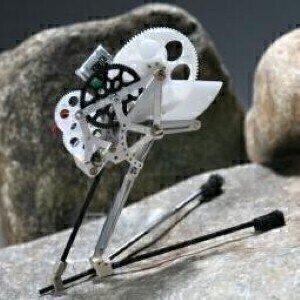-
 Scientists could make better robots if they allow them to learn like humans do
Scientists could make better robots if they allow them to learn like humans do
News & Views
Scientists find baby steps help robots learn
Jan 21 2011
Like humans do, robots can learn to walk gradually if they are allowed to grow and change in shape as they do so, says an engineer from the University of Vermont.
Roboticist Josh Bongard compared fixed-shape robots with ones that began in a tadpole-like gestational form, before gradually adopting an upright, four-legged stance.
Other scientists in the field may be interested to hear that the latter not only learned to walk faster; they also learned to walk better.
For instance, when hit with a stick, fixed-shape robots were more likely to fall over than their counterparts, whose gait proved more robust.
Successive generations of gestational robots mastered the art of walking more quickly than their predecessors, the roboticist also found.
The University of Vermont has almost 1,300 faculty members, 1,500 graduate students and more than 10,000 undergraduates.
Digital Edition
Lab Asia 31.2 April 2024
April 2024
In This Edition Chromatography Articles - Approaches to troubleshooting an SPE method for the analysis of oligonucleotides (pt i) - High-precision liquid flow processes demand full fluidic c...
View all digital editions
Events
Apr 28 2024 Montreal, Quebec, Canada
May 05 2024 Seville, Spain
InformEx Zone at CPhl North America
May 07 2024 Pennsylvania, PA, USA
May 14 2024 Oklahoma City, OK, USA
May 15 2024 Birmingham, UK

















